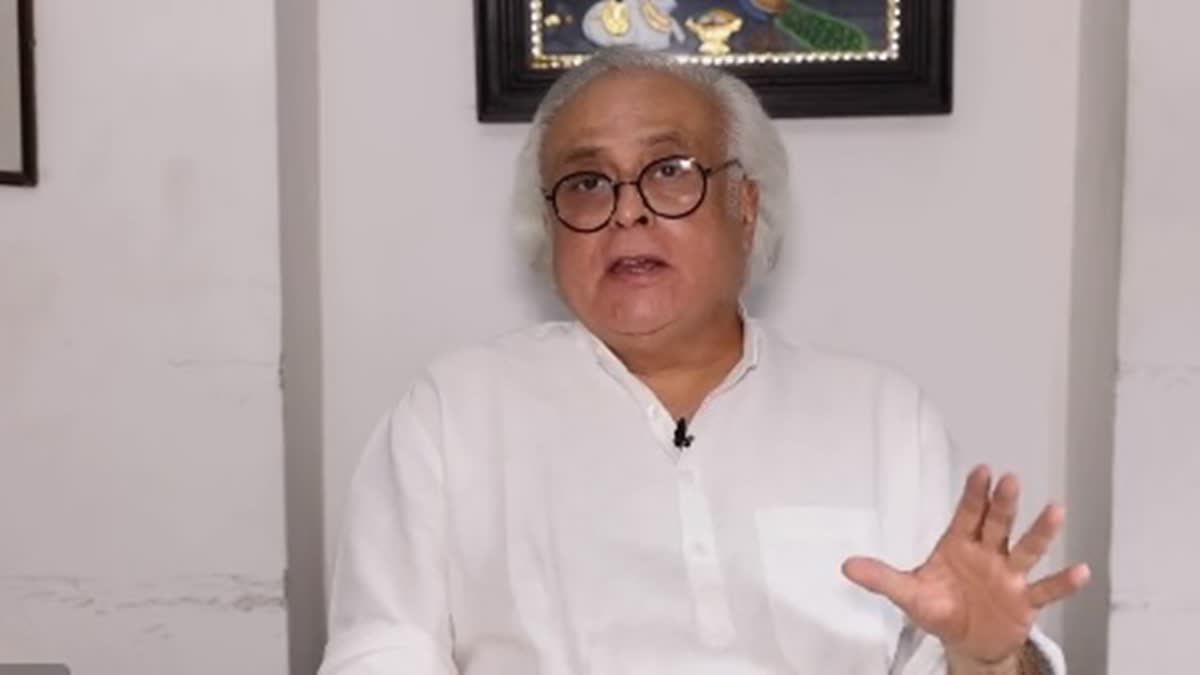New Delhi: Senior Congress leader and former union Environment Minister Jairam Ramesh has called for a “revisit and a total revamp” of the Air Pollution (Control and Prevention) Act, 1981 and the National Ambient Air Quality Standards (NAAQS) in view of the impacts of air pollution on public health. Ramesh alleged that the “weaknesses in our enforcement machinery of both the law and the standards along with the emasculation of the National Green Tribunal have become painfully evident”.
In a detailed post on X, the former union minister said that after the Air Pollution (Control and Prevention) Act came into being in 1981, ambient air quality standards were announced in April 1994 and later revised in October 1998. He said in November 2009, after a thorough review by IIT Kanpur and other institutions a more stringent and wide-ranging National Ambient Air Quality Standards (NAAQS) was put into effect.
-
The Air Pollution (Control and Prevention) Act came into being in 1981. Thereafter, ambient air quality standards were announced in April 1994 and later revised in October 1998.
— Jairam Ramesh (@Jairam_Ramesh) November 3, 2023 " class="align-text-top noRightClick twitterSection" data="
In November 2009, after a thorough review by IIT Kanpur and other institutions a more stringent and… pic.twitter.com/ixVyCWM3nY
">The Air Pollution (Control and Prevention) Act came into being in 1981. Thereafter, ambient air quality standards were announced in April 1994 and later revised in October 1998.
— Jairam Ramesh (@Jairam_Ramesh) November 3, 2023
In November 2009, after a thorough review by IIT Kanpur and other institutions a more stringent and… pic.twitter.com/ixVyCWM3nYThe Air Pollution (Control and Prevention) Act came into being in 1981. Thereafter, ambient air quality standards were announced in April 1994 and later revised in October 1998.
— Jairam Ramesh (@Jairam_Ramesh) November 3, 2023
In November 2009, after a thorough review by IIT Kanpur and other institutions a more stringent and… pic.twitter.com/ixVyCWM3nY
“This covered 12 pollutants considered very detrimental to public health. The press note that accompanied the implementation of NAAQS reveals the thinking for the significant shift that took place then,” Ramesh said. “It is now time for a revisit and a total revamp of both the Act and the NAAQS,” he added.
Also read: India's space programme must remain as publicly funded, managed; executed endeavour: Jairam Ramesh
Ramesh said that during the past decade and more, “compelling evidence has accumulated on the impacts of air pollution on public health”. He said that in January 2014, an expert Steering Committee on Air Pollution and Health Related Issues was set up and this submitted its report in August 2015. “Since then the weaknesses in our enforcement machinery of both the law and the standards along with the emasculation of the National Green Tribunal have become painfully evident.
The National Clean Air Programme is chugging along without having any marked impacts. Air pollution hits the headlines mostly in November when the nation’s capital chokes. But it is a daily agony across the country all round the year,” Ramesh said. Pertinently, the union Ministry of Environment and Forests had on Nov 18, 2009 announced the notification of the Revised National Ambient Air Quality Standards (NAAQS) 2009 in the official Gazette after a gap of 15 years.
These ambient air quality standards/limits provide a legal framework for the control of air pollution and the protection of public health. The previously existing National Ambient Air Quality Standards (NAAQS) were notified by the Central Pollution Control Board (CPCB) in year 1994 under the Air Act, 1981 for seven parameters-Suspended Particulate Matter (SPM), Respirable Particulate Matter (RPM), Sulphur Dioxide (S02), Oxides of Nitrogen (N0x), Carbon Monoxide (CO), Ammonia (NH3) and Lead (Pb).
The Central Government has thereafter also notified NAAQS for six parameters in the year 1996 under the Environment (Protection) Act, 1986. The review of the previous NAAQS and inclusion of new parameters was undertaken by the CPCB in association with the Indian Institute of Technology, Kanpur. The proposal for revision in NAAQS was deliberated upon extensively and has been notified under the Environment (Protection) Act, 1986 on 16 Nov, 2009 by the Ministry of Environment and Forests.



